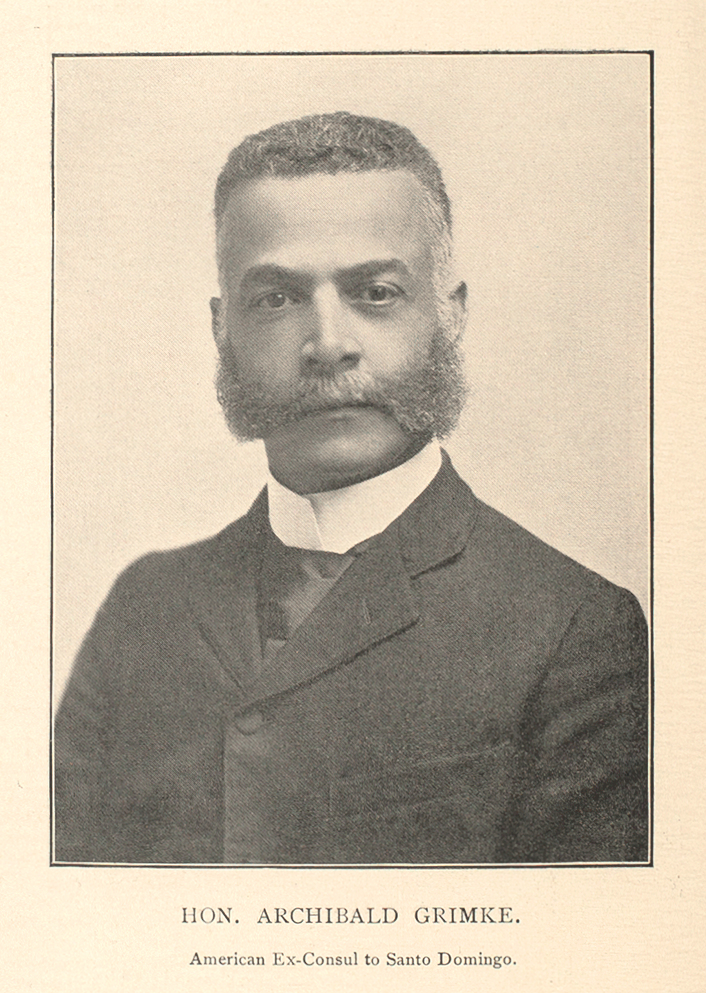Archibald Grimke, born an enslaved child at Cane Acre plantation, would grow up to attend Harvard Law School, become a prominent figure in the NAACP, and serve as U.S. Consul to the Dominican Republic. His father was Henry Grimke, an attorney and planter, and his mother was an enslaved woman named Nancy. Henry’s sisters were the abolitionists Sarah and Angelina Grimke. It is said that Henry acknowledged the sons that he fathered with Nancy but never freed them or mentioned them to other family members. When he died in 1852, Henry left his sons and Nancy to his legitimate son, Montague Grimke. He was prohibited from freeing them upon his death by a law passed in 1841 by the South Carolina legislature. For a while, Nancy and her sons were allowed to live and work in Charleston, but after a few years, Montague claimed them and forced them to work for him. Eventually, Francis was sold for insubordination and Archibald ran away. Family members hid Archibald until the end of the Civil War.

Archibald Grimke, image in public domain
After the war, Archibald and his brother Francis attended Lincoln University in Pennsylvania. An article on Lincoln University appeared in The Standard and identified the Grimke brothers as exemplary scholars. Their aunt, Angelina, read the article and realized they were her nephews. She and her husband, Theodore Weld, offered to sponsor their education. With their financial help, the young men obtained their degrees at Lincoln and Archibald enrolled in Harvard Law School. Archibald graduated from Harvard in 1874 and settled in Boston. In 1883, he edited a Republican newspaper, the Hub, but soon broke with that party and actively supported the Democratic Party. In 1894, President Cleveland appointed him the American consul to the Dominican Republic.
When he returned from the Dominican Republic, Archibald lived in Washington, D.C. where he served as president of the American Negro Academy. From 1913 until his death, he was active in the NAACP, serving on its national board and as president of the Washington, D.C. chapter. In this role, he led a public protest against the resegregation of federal offices by President Woodrow Wilson and in 1914 testified before Congress on that issue. During World War I, he worked to bring attention to the discrimination suffered by African Americans in the military.
In 1919, the NAACP awarded Archibald Grimke the Spingarn Medal for a lifetime’s work for racial equality. He fell ill in 1928 and died in Washington, D.C. in 1930. In 1934 the Phelps Colored Vocational School was named Grimke Elementary in his honor. The school closed in the 1980s, but the building served as headquarters for the Fire and Corrections Department. The gymnasium currently houses the African American Civil War Museum.